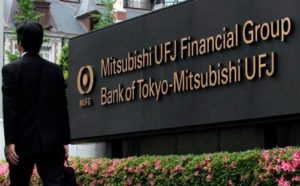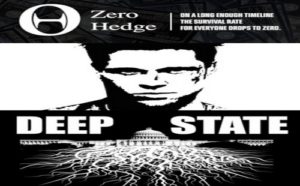BanksterCrime,
Nvidia Share Price Performance Year-to-Date (Green) Versus S&P 500 (Orange) and Russell 2000 (Blue)
By Pam Martens and Russ Martens:
On Tuesday, a stock most Americans had never heard of four years ago – Nvidia – closed with a market cap of $3.34 trillion. That makes it the most valuable company in the world, overtaking Microsoft’s heady $3.32 trillion market cap.
Nvidia’s share price (ticker NVDA) has soared 174 percent year-to-date while the S&P 500 is up just 15 percent. The much broader index, the Russell 2000, has flat-lined this year. (See chart above.) Without the gains from Nvidia, the S&P 500 would be reporting one-third less percentage increase year-to-date.
Nvidia trades on the Nasdaq stock market. Its share price has been riding the artificial intelligence (AI) hype in a manner reminiscent of how the Nasdaq skyrocketed in value on the tech and dot.com mania of the late 1990s.
That era did not end well, to put it mildly. The Nasdaq reached a closing high of 5,048.62 on March 10, 2000. The Nasdaq then proceeded to lose 78 percent of its value over the next 2-1/2 years, reaching a closing low of 1,114.11 on October 9, 2002.
As late as February 2000, there was little recognition in mainstream media that the Nasdaq was on the cusp of entering one of the bloodiest selloffs in stock market history. CNNMoney reported as follows on February 29, 2000:
“U.S. stocks rallied broadly Tuesday, sending every major market gauge higher and the Nasdaq composite index to its 12th record close of the year as investors snapped up technology shares expected to lead the economy’s growth.”
The same news report quoted Legg Mason’s Chief Market Strategist at the time, Richard Cripps, as follows: “People want to own these (technology) stocks, and that’s what limits any significant drop on these stocks and it’s what puts pressure on the remainder of the market.”
Less than two weeks later, investors began the stampede out of the market darlings.
In 2017, the legendary investor, Warren Buffett, CEO of Berkshire Hathaway, penned his annual letter to shareholders. In it, he opined as follows:
“Above all, it’s our market system – an economic traffic cop ably directing capital, brains and labor – that has created America’s abundance. This system has also been the primary factor in allocating rewards.”
In fact, federal regulators turning a blind eye to market rigging has made the exact opposite of Buffett’s analysis the true reality. The stock market has become a bribed and blindfolded traffic cop, misallocating capital, brains and labor. And a whole platoon of crooked and blindfolded market cops have replaced the market’s efficient pricing mechanism with Dark Pools and trading platforms hiding out in the shadows here and abroad.

![]()




